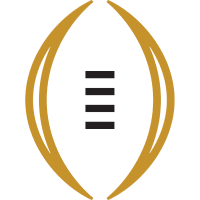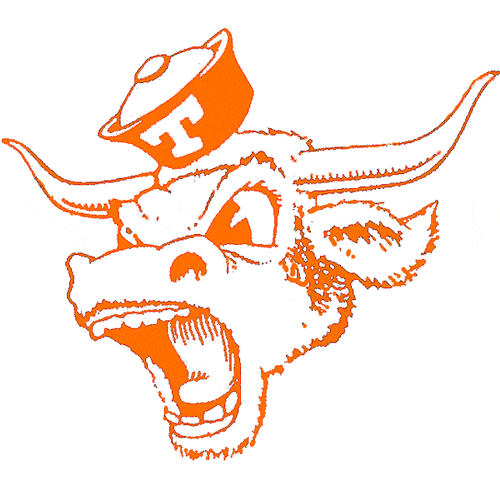NCAA looks like they may have overplayed their hand. While I’ve been done with the NCAA for a while, this may truly be the beginning of the end.
So basically what this boils down to is the question: is Tennessee athletics “Too Big To Fail”? (The answer is going to be yes, so not sure why the NCAA is getting testy.) Because the reason this particular investigation is a bigger deal than usual is the Vols are in “Repeat Violator” territory which means the “Death Penalty” would on the table.
This is going to backfire spectacularly for the NCAA though. The Virginia AG has joined this suit (for reasons unclear, but he clearly has a bone to pick with them after how they handled JMU). If you count other active suits against the NCAA, that’s like 10 attorneys general now. One of these cases will probably be heard before the Supreme Court where the anti-trust exemption is going to be blown to smithereens, now that we’re in the NIL era, and the NCAA (as we know it) will cease to exist.
Also, good to see posts federating properly again. With all the Lemmy upgrade issues in January, it looked like some posts and comments were getting lost in the void so I kept away for a bit waiting for a more stable release.
I’m not sure what the NCAA was thinking in general in this case. From what I’ve been able to dig up, we were following rules at the time and then rules changed (The main point seems to be whether or not we flew Nico to Knoxville via private jet). We apparently offered the NCAA come talk in December to make sure we were law abiding citizens and the NCAA declined. My honest guess is the NCAA thought that since we played along last time they came knocking that we’d do the same and they’d be able to set a precedent for them flexing their muscle. But they forgot that they actually have to have a reason to try and impose punishment. Like I said, I think this may be what ultimately begins the downfall of the NCAA as a governmental institution at least as how we recognize it today.
Serious question: what value does the NCAA really provide to college football?
Dragging the hulking corpse of the old model along, for long enough to save the schools many millions of dollars and the uncertainty of operating in a new environment. Eventually they will have no choice but to admit that the players are providing a valuable service in a competitive marketplace with many very specific demands on their time, and that the schools’ brands are not the only part of the system that has value.
And I guess if you missed Donde blowing this up in the face of the NCAA from her side there’s a really good piece about this bs here: https://www.knoxnews.com/story/sports/college/university-of-tennessee/football/2024/01/30/tennessee-nil-investigation-ncaa-email-donde-plowman-spyre-collective/72283786007/
Good. This is going to go down as potentially the least enjoyable era of college football, but it’s probably the most important to actually get D1 CFB up to the depressingly low moral standards of the National Football League.
It’s all a big cultural and economic mess, but I think eventually, we will end up with a de facto collective bargaining setup – whether that’s laws, competitive necessities, a trade organization, or a formal league – that gets around the clear abuse of the schools’ market position (propped up by the NFL’s 3-year rule and roster limits). A collectively bargained solution would probably still involve legal fictions and quaint absurdities like enrolling the players as students, but honestly that’s fine by me. These are obviously “non traditional” students even by the kindest measure, and they may actually do better academically with access to scholarships or tuition waivers that can be a negotiated benefit and potentially continue past their “competitive usefulness”.
The non-revenue sports could be a sticking point, because schools are bastards and will probably want to cut them if the football money is halved or whatever. I don’t know what to do about it exactly, but the marginal cost of an athletic scholarship itself is nowhere near the sticker price, yet for the vast majority of student athletes it will be at or above the market rate for their athletic services. If the new system simply retains the programs and scholarships, then investment in facilities and coaching is less concerning. I will admit to a certain ambivalence about heavy investment in intercollegiate athletics where the alumni and other stakeholders don’t seem overly concerned about the results. Our system of running so many top-end developmental sporting tiers through our universities is kludgy and antiquated and, frankly, kind of stupid.
As a non revenue athlete and a cfb fan, the non revenue question is incredibly tricky. How do we implement a fair standard that prevents swimming, tennis, golf, archery etc. not be sacrificed to the cfb gods? Title ix is a great example of how NOT to guarantee that fair means a future for every team and there’s no real good example as far as I’m aware. As much as I love cfb, it’s continued expansion cannot be allowed to jeopardize the future of other collegiate sports. I think there is continued value in sports to academic institutions. Both for the institution as advertising and for athletes as sports repeatedly prove to be beneficial for cognitive development (outside of tbis of course). Plus I think it’s a great way to train sports medicine majors, a field that will hopefully continue to have some level of demand until we upload our collective conscious into the cloud. cfb and cbb aren’t going anywhere anytime soon in the meantime and we should continue to leverage that for our other collegiate programing, especially non revenue sports. But I also don’t have a solution




